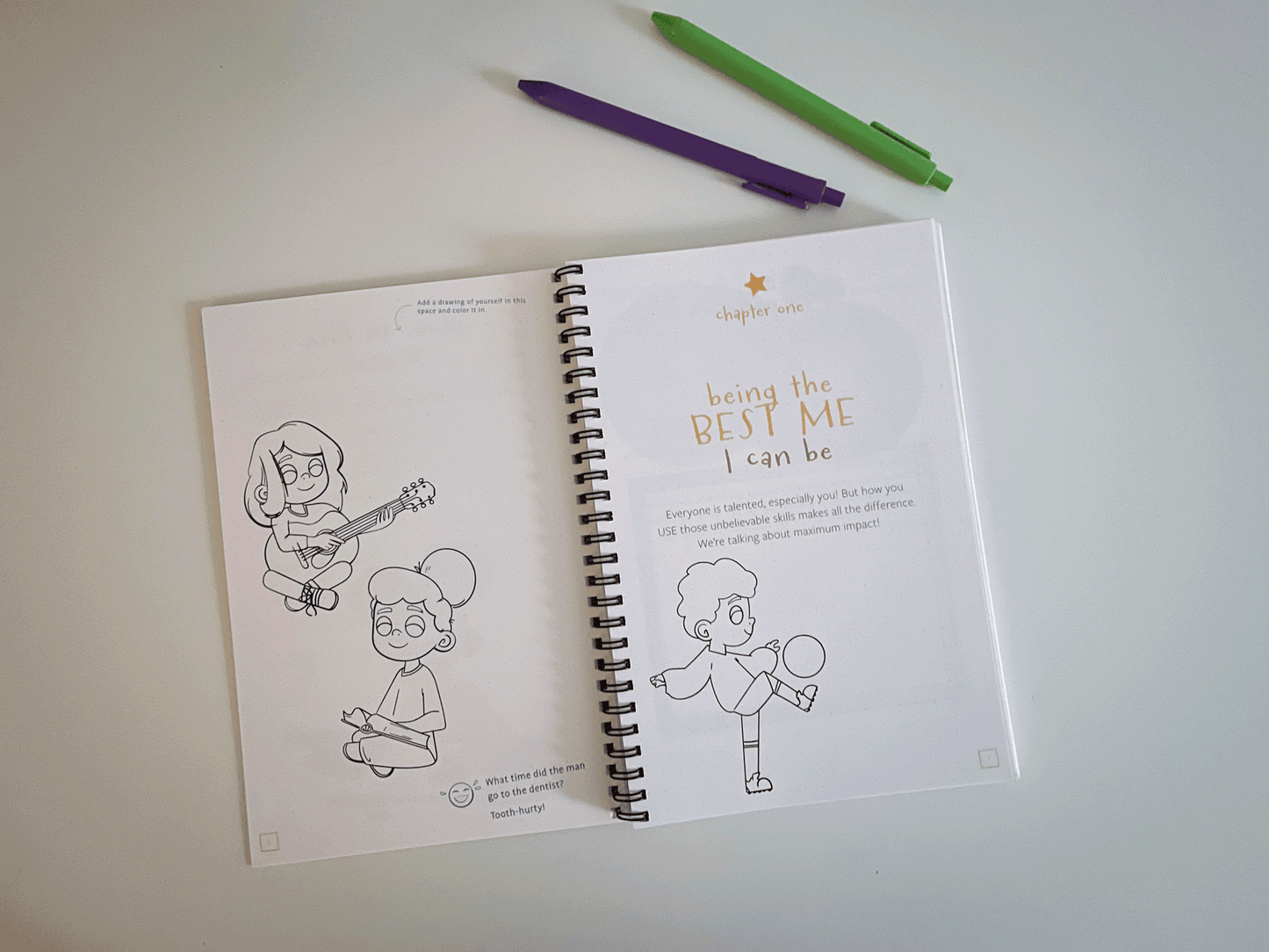WHY THE SQUEAKY WHEEL APPROACH TO FAMILY LIFE DOESN’T WORK!
Mary Jo GerdHave you ever experienced a classroom environment where someone asks so many questions they start to become a distraction? I remember the first few weeks of a college course in which I would literally cringe if a particular classmate raised her hand.
“Umm… so, is this going to be on the midterm?” “You just said, “It may cause a problem. Can you clarify when it may not?” “Could you please restate what you just said? I lost track of my notes about half way through that bit about...”
And on and on it went. You could almost hear a collective inward groan from the rest of the students as the attention-seeking student did her best to take center stage with her endless comments.
To our seasoned professor’s credit, he artfully navigated the situation, acknowledging the weightier questions worth addressing, and gently dismissing those which were clearly time wasters. He did so without belittling her and yet kept the progress of the class chugging forward.
Remarkably within a few weeks, the needy student began to censor her questions, raising her hand only for more pertinent comments. His gentle guidance and leadership helped redirect the over-eager co-ed and prevented the rest of us from losing valuable class time. A masterful way to manage a very squeaky wheel!
As we all know, the dysfunctional dynamic where one person hoards all the attention doesn’t just happen in classroom settings; unfortunately, it can also be a reality of family life. While the “squeaky wheel approach” to family life is going to happen from time to time—hello, terrible two’s!—it should not be the norm for a healthy family life.
There can be a whole list of reasons a particular child or situation requires extra attention or care in different seasons: health problems, emotional difficulty, social setbacks, and growth transitions. But if all the family’s resources are poured into one person as a rule rather than the exception, things can get off kilter FAST.
Before you know it, you’re putting out fires left and right, rather than resting easy on those reliable smoke alarms. In other words, a family steps into crisis mode, moving from one outburst, drama, or disaster to the next. A family can’t flourish if they’re constantly battling fires. Is there a way for parents to tap into the same strategy the wise professor used in order to manage the squeaky wheel in his class? You bet!
LET’S TAKE A LOOK AT THE TOP SQUEAKY WHEEL SCENARIOS AND FIND OUT HOW TO COURSE CORRECT WITH CARE AND COMPASSION!
Scenario #1: The Tantrum Tornado
This is the kid who flies off the handle at the drop of a hat. (It’s not just children who can fall into this category. 😉) If someone is only given attention when they complain, cause difficulty, or have meltdowns, they can become conditioned to seeking help in that manner. It can turn into a habitual response. Siblings will undoubtedly follow suit.
SOLUTION To better navigate the tantrums and resistance, parents need to work together swiftly and try to remain united in their response. Also, if a child has a melt down for a seemingly pointless reason (someone looked at his toy!) offer him a place to express his outrage, just out of the way of the rest of the family. “You are welcome to scream and shout in your room with the door closed, but you are being too disruptive to the rest of the family in the living room.” This teaches a valuable lesson: your feelings are valid, but you don’t dictate the mood of this whole family.
Scenario #2: Discussion Dominator
This is the person who takes over most discussions. “We need to watch this movie/ play this game/ go to this place.” When one family member is super vocal and very insistent in his opinions, the other less communicative (or more introverted) children can be overlooked. A fully functioning family means everyone is heard! Just because a 12-year-old sassy pre-teen is the most verbal, she shouldn’t be the spokesperson for the rest of the family.
SOLUTION If you have a child that likes to speak for the whole group, be sure to acknowledge his/ her gift for voicing opinions & preferences. But also encourage the others with questions. “Great point, honey. But now we need to hear from the others.” If she mopes, that’s fine because she’s still learning how things work. When children are not fostered to be flexible and to listen to others’ opinions, they will take that self-centeredness into their adult relationships which can spell problems. By course correcting, it’s more likely that each family member will feel empowered to share. It’s a good chance your opinionated child will make a great leader someday once she learns to use her sway in a positive way.
Scenario #3: The Energy Sucker
This is the person who thrives on drama. You’ve got an energy sucker if he/she picks fights with everyone and tends to stir the pot in the family whenever he has free time. Most kids will go through phases like this, but when it comes to a pattern of behavior, it's important to take note. It’s not fair to the rest of the family who want to feel like home is a sanctuary.
SOLUTION By merely intervening when fights occur (crisis management) you may be missing bigger problems. Often too much screen time can result in irritability. Look for opportunities to help the child use their boredom more productively than screens. Make sure the child gets plenty of outdoor time doing actual exercise. Encourage him/ her to nature journal. Use fun fidget toys like slime. This will help them use up pent up energy on something more productive than picking fights.
Scenario #4: The Rock Star
This is the kid who succeeds in everything he or she does which is certainly not a problem in and of itself. However, when the rest of the family senses that there’s a golden child who can do no wrong, the others will quickly recede into the background. And the kid who is doing so well may get a false sense of what life is like.
SOLUTION Just because a kid is nailing goals, he/she should not receive special treatment. It will cause tension between the siblings and discourage everyone from stretching themselves to be their individual best. Instead, praise all children, not for good grades or winning a game, which are results, but for showing the great character strength it took to get there. “I can tell you spent a lot of time studying for that spelling test. Your determination and hard work paid off.” This is the same message you should send to those who don’t score the best grades. “I admire how you gave your all in writing this essay. The grade doesn’t reflect how much effort you put in.” Make sure you remind everyone that all children are blessed with different gifts, but some are more obvious, while others will blossom later on. Celebrate everyone’s wins according their unique abilities.
By avoiding the squeaky wheel approach to family life, parents are able to focus on possibilities, rather than problems. When a family orders their priorities according to certain big ideals: love, unity, kindness, service, gratitude and other character strengths, they will naturally avoid putting too much energy into one situation or problematic behavior. Don’t get pulled into the squeaky wheel spiral.
In a past blog, we touched on how kids can easily take up too many resources from a loving marriage resulting in a topsy-turvy family. Find out why kids should NOT be the #1 priority in a happy family. Sounds scandalous but you’ve got to read more to find out.
















